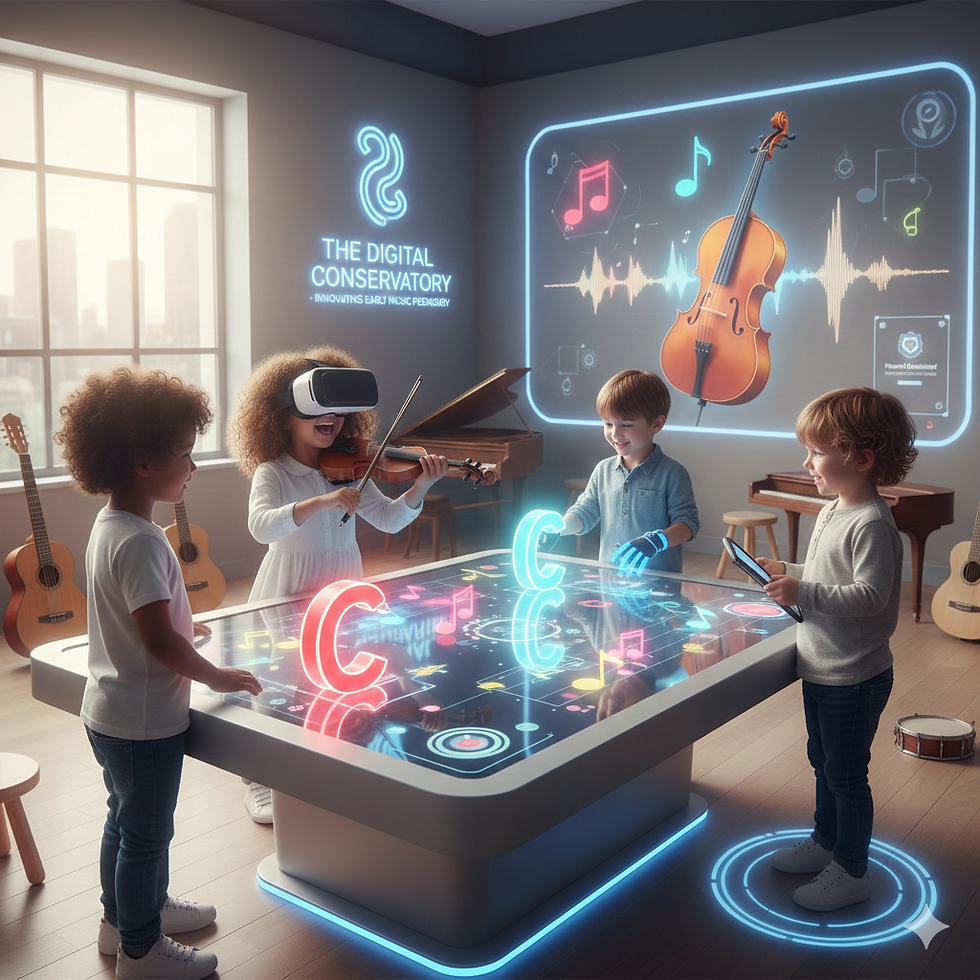"Sing It Like You Speak It: The Organismic Way to Learn Music"
- May 8, 2025
- 2 min read
Updated: May 13, 2025
What if learning music was more like learning to speak?
Not about theory or technical drills, but about immersion, expression, and natural growth—just like how a child learns a mother tongue. This is the idea behind looking at music learning from an organismic perspective.
Let’s explore how this comparison changes the way we think about learning music.

🌿 What Is an Organismic Perspective?
The word organismic comes from the idea that humans grow like living organisms. Learning is not a step-by-step process but a whole experience, involving:
Body, mind, and emotion
Natural curiosity
Self-motivation
Growth through meaningful interactions
In this view, music isn’t just a subject—it’s something you grow into, much like language.
🗣️ What We Can Learn from Language Learning
Think about how babies learn to talk:
They hear sounds constantly.
They copy what they hear.
They make mistakes—but no one punishes them for it.
They slowly build fluency through use and interaction.
No one teaches them grammar first. They learn by being in the environment of language.
What if we applied the same logic to music?
🎵 Music Learning as a Natural Process
From an organismic perspective, music is not about rote learning—it’s about growth. Like language, it should be:
Immersive – Listen to music all the time.
Exploratory – Try things out without fear.
Communicative – Make music with others.
Expressive – Focus on what you want to say through music.
Process-driven – Trust that fluency will come with time and engagement.
💡 Tips for Music Learners
Try shifting your approach with these ideas:
Surround Yourself with MusicListen actively. Let different styles, rhythms, and melodies become part of your daily soundscape.
Imitate and ExperimentJust like speaking, copying is a valid and valuable part of learning music.
Value Expression Over PerfectionLet feeling guide you. Your music doesn’t have to be flawless to be meaningful.
Make Music with OthersLearning grows faster through shared musical experiences—jam sessions, group lessons, or casual duets.
Be Patient with the ProcessYou didn’t learn to talk in a week. Give music the same grace.
🧠 Music Is Not Just in the Hands—It’s in the Body and Soul
Music learning is not just technique or information. It’s emotional, intuitive, and even physical. Just as tone and gesture matter in language, expression and feeling matter in music. Let your body and emotions join your learning journey.
🌼 Final Note
Seeing music learning as language learning helps us remember: we’re not machines being trained—we’re people growing. From an organismic perspective, music learning is not only about skill—it’s about connection, expression, and inner development.
So, listen deeply. Play freely. Learn naturally.
You’re not just learning music. You’re learning to speak a new language—with sound.



Comments